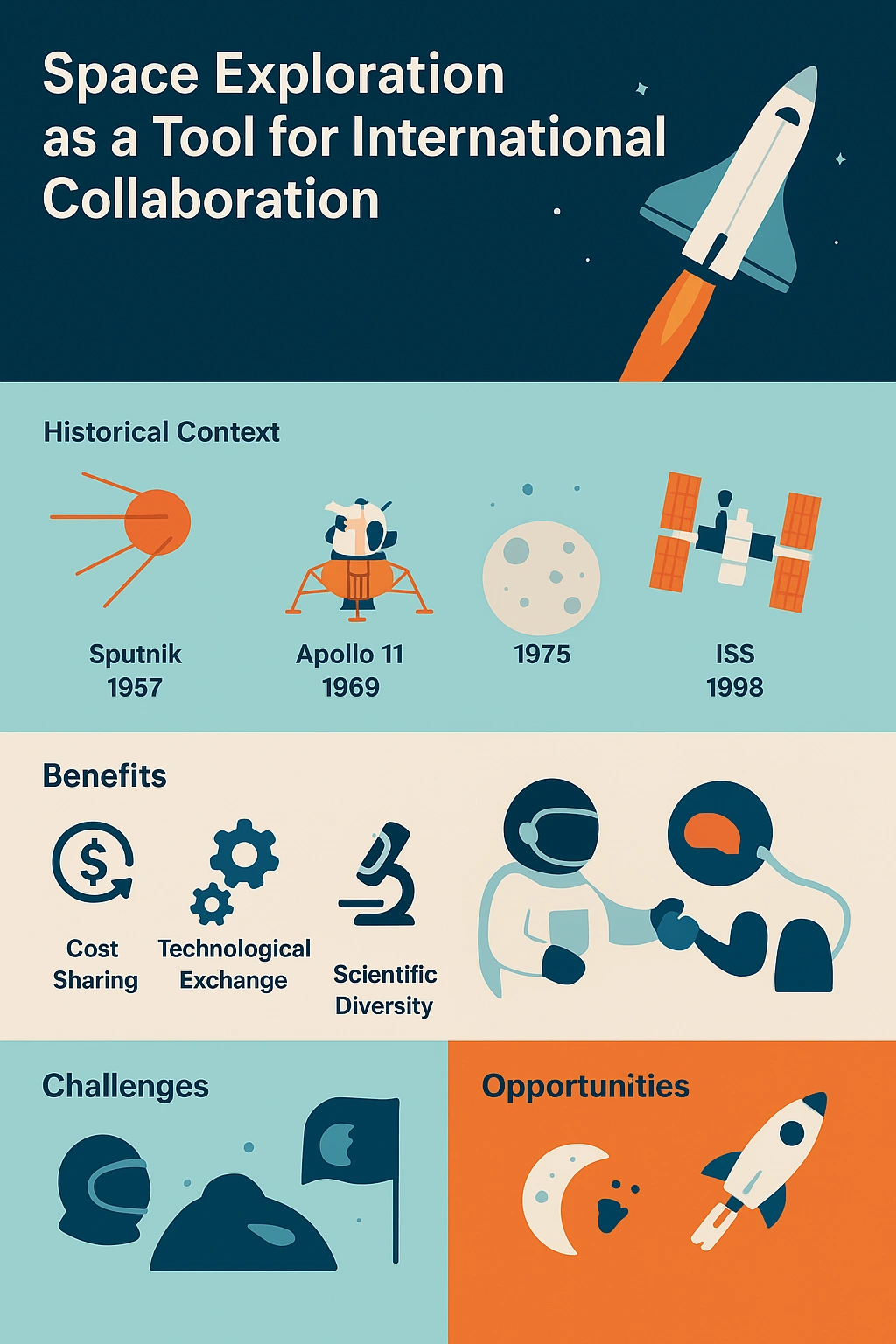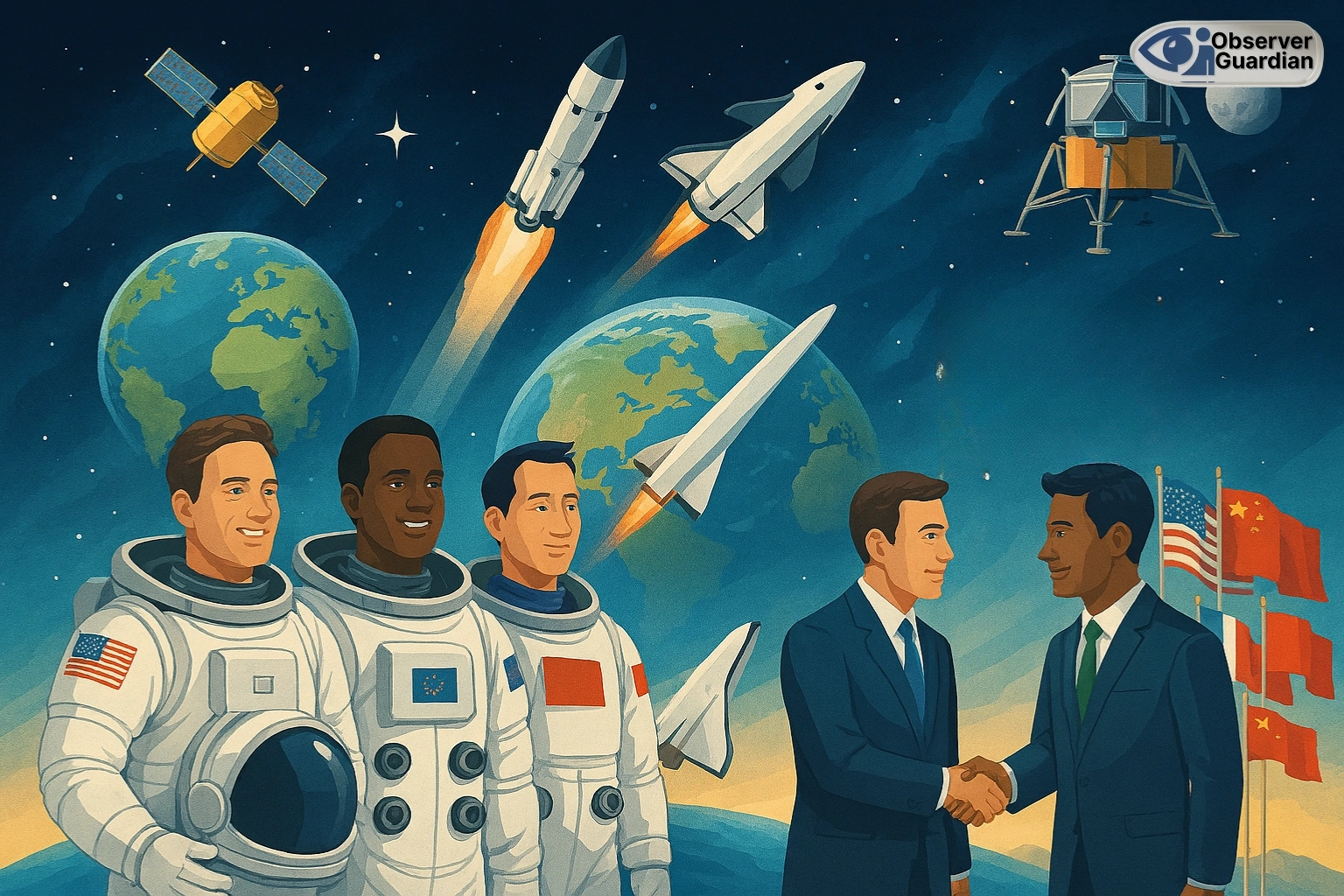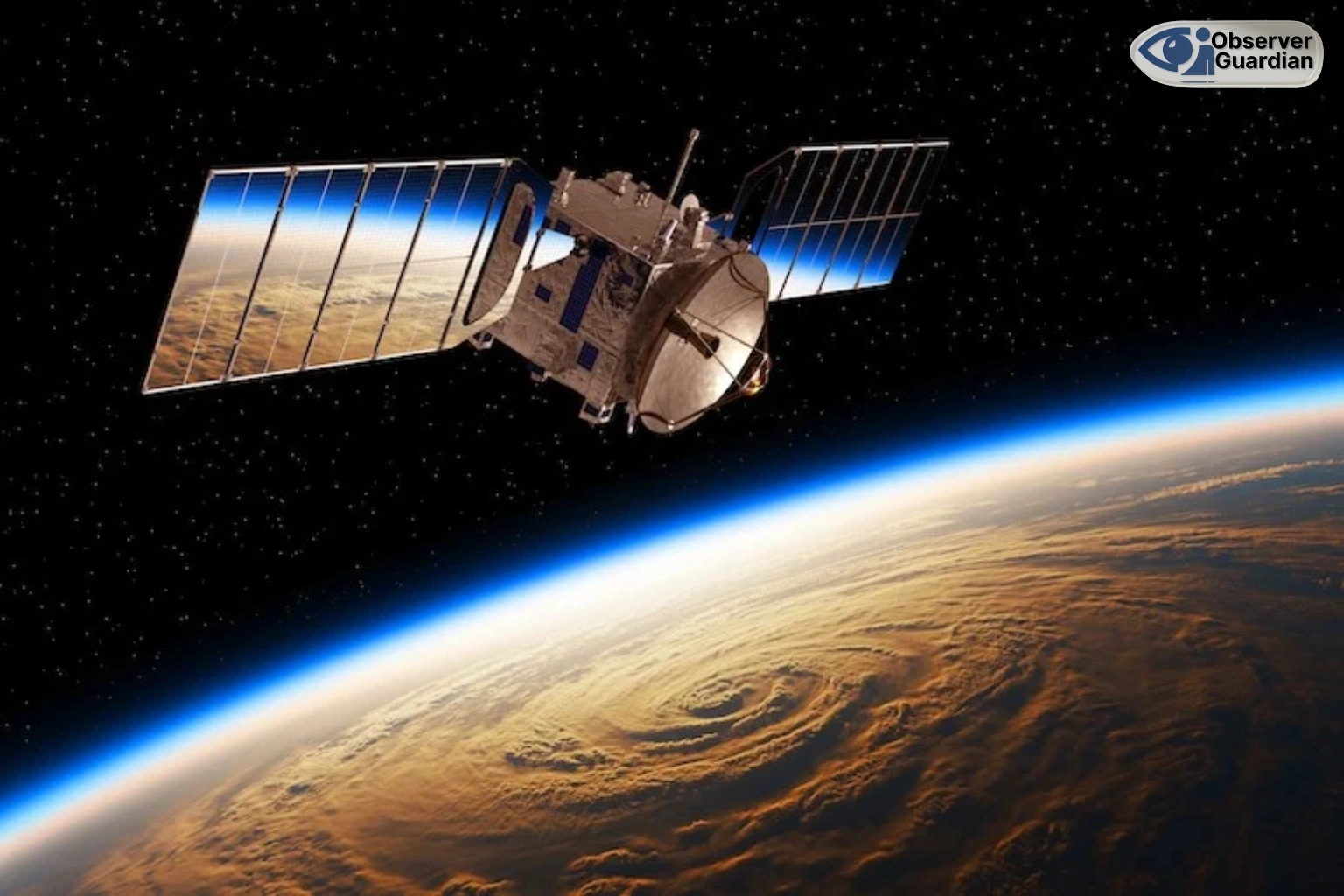Space exploration which initially was used as a manifestation of a Cold War competition has progressively emerged as a domain of international cooperation. Space in the 20th century especially the middle part was a powdered area during which there was high competition between the United States and the Soviet Union. Unlike the days when space policy was purely governed by the strategic and political considerations of nations, today international collaboration has become one of the hallmarks of most space missions. This trend is evidence not only to the difficulty and expense of space exploration, but the human desire to go beyond our planet as well.
Historical Context: the Evolution of Competition to Cooperation
Competition in space exploration was a feature of the first few decades in the history. The launch of Sputnik by the Soviet Union in 1957 and the landing of an Apollo 11 astronaut on the Moon in 1969 by the United States were two stepping stones of the geopolitical rivalry. Yet, at the end of the 20th century, there was quite a transformation to cooperation. One of the most iconic was the Apollo Soyouz Test Project (1975), when American and Soviet spacecraft linked up in earth orbit expressing a Cold War burst. This mission was the premise of future larger efforts at cooperation and demonstrated that space was an avenue of possibility among geopolitical rivals.
Benefits of International Collaboration in Space Exploration
1. Cost Sharing
Missions that involve travelling to space require a lot of money. Through sharing of budgets, the nations can collectively implement big projects that would be too costly to pursue separately. Through this model, excessive redundancy is kept at a minimum and efficiency is maximized.
2. Technological Exchange
Joint programs help to share not only technological advances but also the propulsion mechanism, life support systems, etc. Transnational alliances shorten the pace of development and mitigate risks of development.
3. Scientific Diversity
Cross nation work teams offer different analysis, knowledge, and approaches and enrich the findings of the research. External knowledge, such as that of experts in different fields and countries with experience conducted during scientific experiments on the ISS, is used.
4. Diplomatic Engagement
The diplomatic relations can be enhanced through cooperation in space. Space projects are usually used to provide channels of communication on technical and scientific levels even in nations with poor political relationships.

Challenges to Space Collaboration
On the one hand, the advantages are obvious, on the other hand, space collaboration is not free of difficulties:
- Geopolitical Tensions: Strategic differences may interfere with collaborations, as called out in the recent bid to change the involvement of Russia in the ISS following the war in Ukraine.
- Reservations on Technology Transfer: The transfer of some technologies is very limited due to national security reasons, particularly those technologies that may have military use.
- Uncertainty of Funding: Lack of funds or a political turnaround in the countries where partners work may become threats to long term assignments.
- Issues of Standardization: There is always a problem of technical compatibility of the systems of different countries despite being standardized.
Emerging Opportunities: The New Space Era
The dawn of the 21st century has seen space exploration being changed, with greater focus on the centrality of private companies. Companies such as SpaceX, Blue Origin, and Axiom Space are opening the door to multinational cooperation opportunities in the commercial launch services, space tourism, and orbital infrastructure. Also, projects funded by such organizations as NASA such as the Artemis Program that would bring people to the Moon again and create a sustainable presence on Moon involve the involvement of many nations. It is thanks to an international agreement called Artemis Accords intended to provide global peace and cooperation in space exploration.
The fact that global space governance debates have become more prominent (in the United Nations, the Committee on the Peaceful Uses of Outer Space (COPUOS), in particular) underlines this necessity of a cooperative approach. Concerns such as space debris, defense of planets, and use of the resources in space bodies and celestial bodies are to be addressed through multilateral agreement and responsibility sharing.

Space as a Unifying Human Endeavor
Fundamentally, space exploration is the picture of universal human desire to know where we belong in the universe. This dream does not only go beyond national borders, but the political order of things. Famous imagery, such as the picture of the Earthrise during the Apollo 8 mission, is a reminder to humankind that we all are one and that we should be dependent on each other. Space exploration is one of the few fields in which science, as well as ties between diplomacy and human curiosity, can be applied as a method of attaining peace and mutual understanding.
Space is collaborative, and thus it can be used as an example to solve complex transnational situations which are experienced globally, as evident during the Covid 19 pandemic, climate change, and environmental degradation. The international cooperation needed to create and maintain such a complex project as the ISS may be transposed to other spheres of the governing world.
The area of space exploration has transformed into a field of competition among superpowers to the world of unprecedented international cooperation. Such collaborative projects as the International Space Station, the James Webb Space Telescope, and international missions to planets provide examples of how collaborative projects reach new standards of advancing science and technology and international relations. Though there will always be geopolitical tensions and technical difficulties, a need to know more about the universe has been a strong motivator in the continued cooperation. In this divided world, space exploration is something that reminds us that when used in the right way, when given one common purpose, when directed to the same target, a nation can do extraordinary things, which shows not only that the future in space can unify the entire human race.
Disclaimer: The views and opinions expressed in this article are exclusively those of the author and do not reflect the official stance, policies, or perspectives of the Platform.








